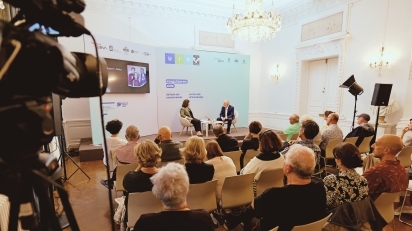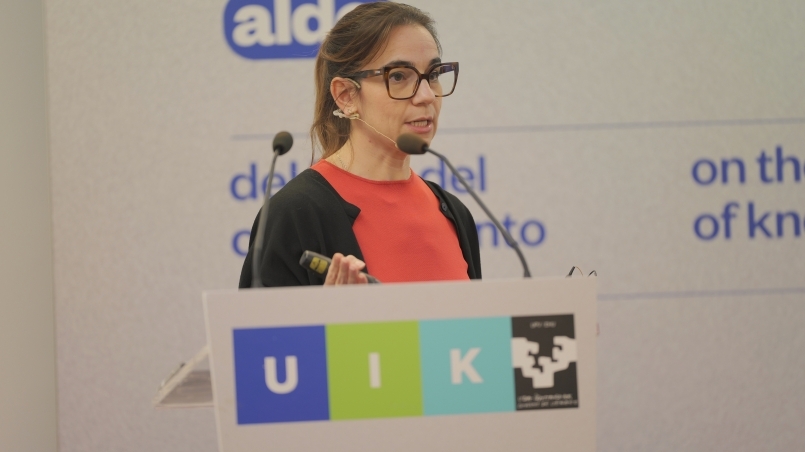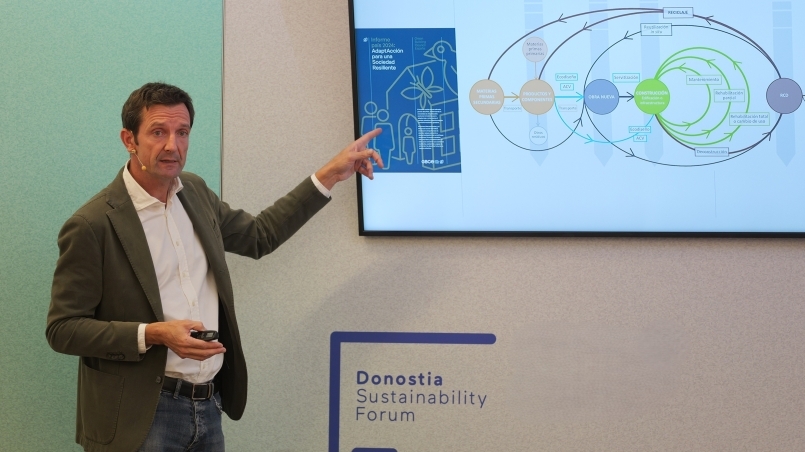Solutions and hope for climate action
Matt McGrath is the BBC's environment correspondent, where he has worked since 1997. Between 2010 and 2011 he was a research fellow at the Massachusetts Institute of Technology (MIT) under the Knight Programme for Science Journalism, the most prestigious programme in the field. In 2019 he was awarded the first Biophilia Environmental Communication Award by the BBVA Foundation for his contribution to improving public understanding and awareness of environmental challenges. Caty Arévalo is a journalist and communicator specialising in science and the environment at the EFE news agency and has been reporting on the main national and international events in this field for more than two decades. Like McGrath, she was also a researcher at MIT in the Knight Programme for Science Journalism and at the Reuters Institute at Oxford University. In 2017 she was awarded the BBVA Foundation Prize for Biodiversity Conservation, in the category of Knowledge Dissemination and Awareness Raising in Biodiversity Conservation.

Temperature records
The conversation began with a reminder of the temperature rise. Arevalo reminded us that there is currently no guarantee that we will stop the increase in emissions in 2025 as science indicates if we want to limit the global temperature increase to 1.5 degrees, in line with the Paris Agreement.
McGrath added that September has indeed been a record-breaking month, a very worrying trend that has many wondering if there has been a quantum leap if we have crossed a tipping point and are in an era of faster warming. The answer from leading climate scientists indicates that the situation recorded in September is a combination of different factors and we are still within the predicted trends, albeit at the upper limit of the trend.
Solutions for hope and action
Given this situation, what solutions can be adopted to respond to this crisis? Arévalo stressed that first and foremost is the phasing out of fossil fuels, followed by a determined push for transition. The key to this is to impose taxes on those activities that need to be reduced, using this revenue to boost renewable energies and energy efficiency. In addition, another key aspect is the monitoring and follow-up of targets and plans put forward by governments, but also by businesses. A third key measure is ecosystem restoration, which is not only effective in combating climate change but also relatively inexpensive. Finally, there is multilateral action. Climate change is a global problem, so summits, while not always making as much progress as desirable, are also essential.
For his part, McGrath stressed the importance of communicating the advances and solutions that exist to respond to climate change: from progress in the implementation of renewable energies, both on a large scale and what is known as secret solar energy. This would be solar energy installed by individuals for their consumption, which in the UK has doubled in recent months and whose impact is not being accounted for. He also mentioned the reduction in the price of electric cars and energy storage batteries. Other actions that are making impressive progress include climate litigation and political changes in countries such as Mexico, Poland, and Australia. Arévalo added that major societal changes are not always linear and mentioned that several positive tipping points have been identified, which can make the transition accelerate and advance faster than we can now perceive.
A transition that leaves no one behind
The journalists reviewed the main objectives of the upcoming UN climate change summit to be held in December in the United Arab Emirates, highlighting the importance of achieving a transition that is "just and equitable". In the international context, this means supporting the countries that have contributed the least to the problem but are disproportionately suffering the consequences.


